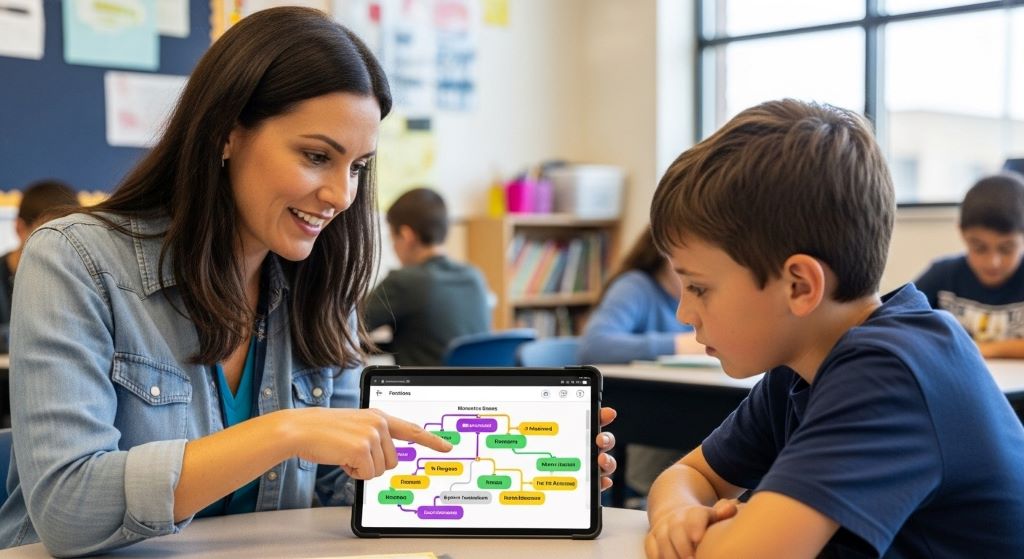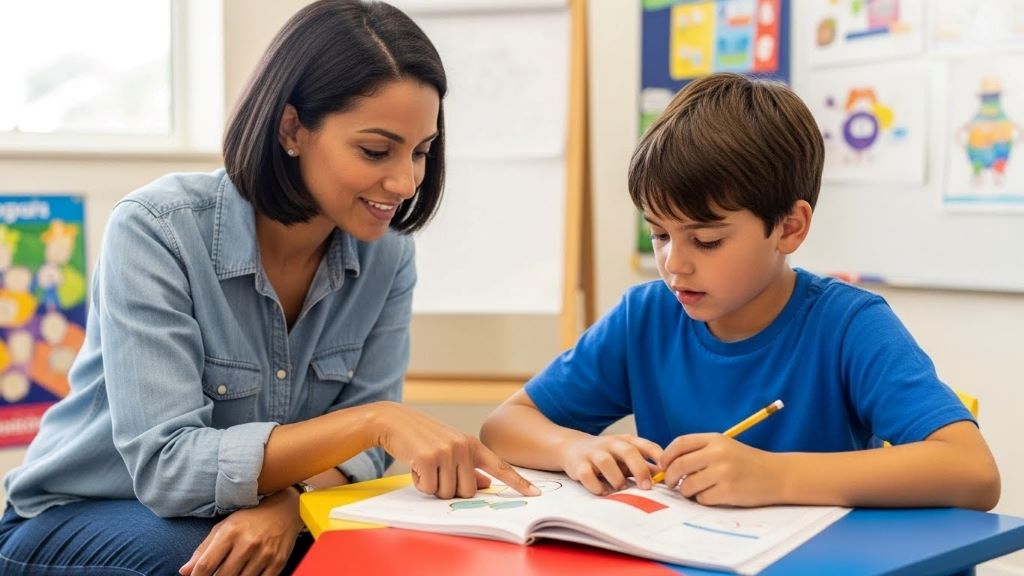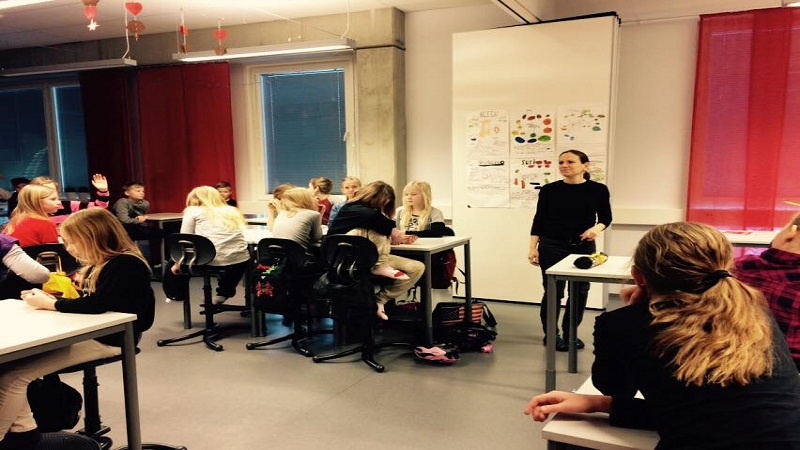Emotional intelligence is essential for becoming adults capable of successfully entering the world of work. The research of the shown that a study experience abroad can significantly contribute to the development of emotional intelligence
“School experience abroad and the development of emotional intelligence” is the title of the study conducted by the Business School. The aim of the research was to verify the existence of a connection between studying abroad and the development of children’s emotional intelligence. The results of the study, presented to trainers and teachers on highlighted a significant increase in emotional intelligence in boys returning from the study period abroad. It is a capacity considered essential for becoming adults capable of inserting themselves in a functional and winning manner in the world of work.
Emotional Intelligence
Emotional intelligence is the new frontier for tomorrow’s professionals. What is it? Emotional intelligence is that capacity that allows us to recognize emotions and use them in the thought processes, but also to manage emotional states in individual life and in relationships with others that allows us to increase our awareness of ourselves.
Thanks to research conducted during the course of the twentieth century, it has come to understand that the sole parameter of the IQ is not exhaustive in the description of a person’s intelligence. In fact, IQ only highlights one aspect of an individual’s intellectual capacity. Along with cognitive skills, social ones must also be considered, which depend on a person’s emotional intelligence. In order to develop emotional intelligence, a suitable family and school environment is essential. Family relationships must be oriented towards the development of the child’s personality and the school context must aim to promote the emotional aspects, such as self-awareness, assertiveness, empathy and social responsibility of the students. Furthermore, it is important to try not to avoid difficulties and conflicts, but to teach children how to manage and deal with difficult situations, to promote flexibility and the process of identity building.
The research “School experience abroad and the development of emotional intelligence”
The research “School experience abroad and the development of emotional intelligence”, carried out by the Business School, was conducted on a sample of over 1500 students between the ages of 14 and 18 years that have spent a period of study abroad demonstrating how this experience can help children develop their emotional intelligence, a transverse competence necessary to make their way in the future world of work.

The Conditions
Studying abroad is considered an opportunity for life in which the boy who is far from familiar, social and scholastic environment, has the opportunity to grow and put himself to the test in situations different from those to which is accustomed. “In the boys who participate in the intercultural exchange program”, explains the psychologist and psychotherapist of the Association of Psychologists, “good basic self-esteem and a capacity to be free of emotional conditioning are imported, but also the ability to understand when to ask for help”. So a study experience abroad can affect the development of emotional intelligence in an adolescent, provided there are good prerequisites. The desire to learn a language, emulate friends, accommodate parent’s expectations or move away from a difficult school routine are not sufficient motivations to determine the success of the program. At the base of the choice there must also be an intrinsic motivation, like wanting to know oneself, wanting to test oneself, wanting to grow up and becoming an adult.
You may also like to read: Studying at the University: 3 things to know in the first year
During the research, five aspects related to the emotional quotient of the boys were analyzed, which were tested both at the start and at the end of the study trip. The five aspects examined are …
- The Emotional Interpersonal Quotient, referred to self-awareness;
- The Interpersonal Emotional Quotient, which detects the ability to be in relationship with the other;
- The Emotional Quotient Adaptability, which regards the ability to process and manage situations;
- The Emotional Quotient Management of Stress, which detects the ability to cope with negative and stressful events;
- The Emotional Quotient General Mood, which concerns the ability to maintain a positive and proactive attitude.
Research Results
The results of the research have shown that, even before the training experience abroad, the sample of students showed a medium level of emotional intelligence. This indicates that the children who choose to participate in a study program abroad possess the characteristics that make them a selected champion. From a scholastic point of view, they are students who have a good academic performance that allows them to spend part or a whole year abroad. From a psychological and emotional point of view, it is assumed that these children live in a family environment open to new experiences, willing to give confidence to their child in terms of autonomy.
Upon returning from the study experience abroad, a significant increase in children’s was observed by the tests. In fact, returned from the trip the boys demonstrate …
- To be able to recognize their emotions and states of mind and to be able to understand their causes ;
- To have improved their ability to establish and maintain satisfactory interpersonal relationships. Returning from the study trip, the boys show a greater empathy, that is a greater ability to recognize and understand the emotions of others. This figure demonstrates the link between the study experience abroad and the possibility of building or strengthening the sense of trust in others and relationships, a fundamental element for development towards adulthood;
- To be more satisfied with yourself and to feel enthusiastic. So to be happier;
- A greater flexibility with regard to changing situations. The experience of studying in a foreign country puts the boys in comparison with a reality different from their own and places them before the need to change habits and respond to new and unexpected situations. For this reason, flexibility tends to increase, ensuring the possibility of adapting to new circumstances. Flexibility also implies a certain degree of tolerance with respect to different ways of understanding life and situations. The comparison with a different culture requires this openness to relate to others and the study experience abroad favors it;
- A greater ability to tolerate stress linked to change, not knowing places, people and language. The new situation encourages the student to cope with their emotional resources to overcome the small and large obstacles of adaptation. Resilience does not translate into resisting a negative event without falling, but rather falling and then rising again, regenerating;
- To be more optimistic. The boys show a positive attitude towards what happens, which is closely linked to the ability to tolerate stress: being able to see the positive side of things makes them affordable. The experience affects optimism also because it instills self-confidence and confirms a value of oneself: that of having been able to live a new experience, not obviously simple.
The comparison with other students, with people from a different culture, with a different school system and with a new socio-cultural environment has favored the emotional development of the students. Moreover, from the research, we have seen that each emotional competence positively influences all the others. Therefore, even improving some aspects of emotional intelligence, the other aspects also improve. This makes it possible to affirm the importance for young people of living formative experiences able to take into account not only the intellectual development but above all the emotional aspects, so important in the evolution of the person. The socio-emotional skills acquired through a study experience abroad are an indicator of individual and relational growth which is fundamental in view of becoming adults able to use not only their own rational skills, but also emotional ones. And this can make the difference in the possibility of realizing oneself.







